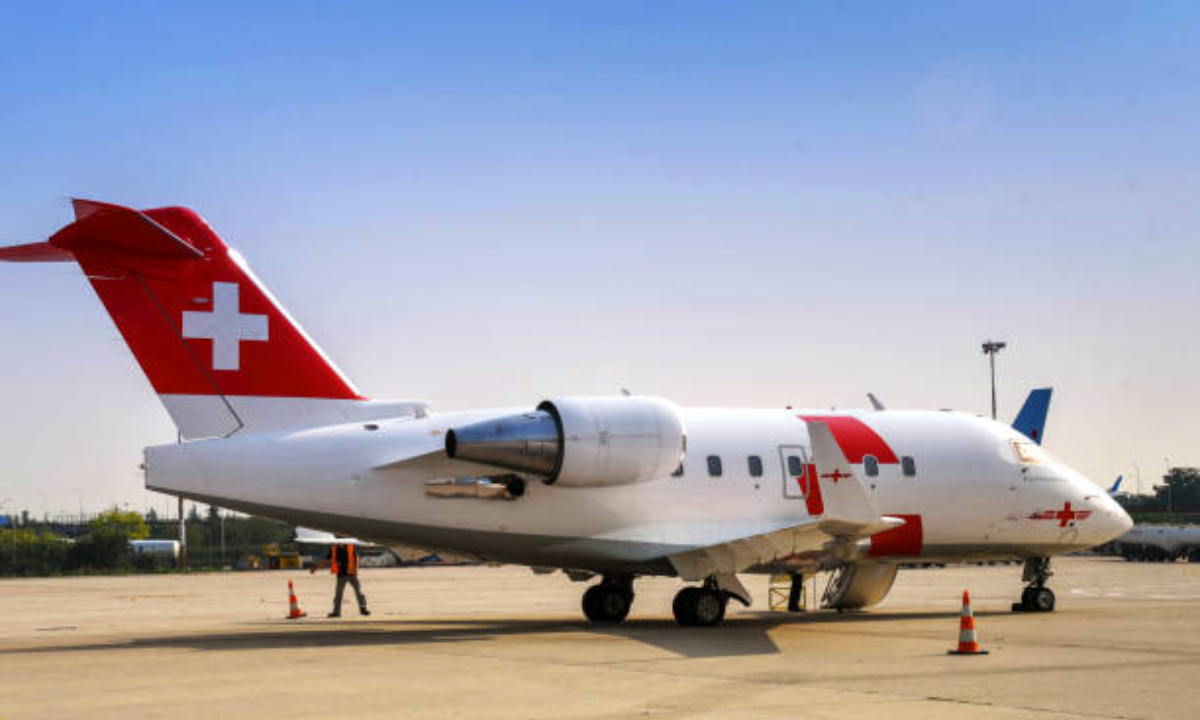Repatriation services become essential when a loved one passes away in another country, leaving families overwhelmed with grief and uncertainty. Alongside the emotional pain, there are practical challenges such as securing a death certificate, completing legal formalities, and arranging transportation of the deceased body to be brought back to India. These situations require sensitive handling, as well as proper coordination with authorities and airlines to ensure everything is managed smoothly. At Kaashimukthi, we understand how complex this journey can be and provide compassionate support during such difficult times.
In this blog, we will explain the entire funeral repatriation services process, outline the documents needed, and share how reliable repatriation services in India can ease the burden for families, allowing them to focus on the rituals and last goodbyes.
Why Repatriation Services Are Needed

When someone passes away abroad, the family often wishes for the final rites to be conducted in their homeland. This involves transporting a dead body from one country to another, which is a detailed and regulated process. Airlines, embassies, and local health authorities are all involved, making professional guidance crucial.
Families may not be aware of the documents needed or the specific embalming and sealing requirements set by international health and transport rules. Without professional help, delays can add to the stress. This is why repatriation services play such a vital role, ensuring dignity for the departed and peace of mind for the family.
Key Steps in the Repatriation Process
The repatriation process can feel overwhelming, but understanding the sequence of steps makes it easier to navigate. Below are the typical stages of repatriation of a deceased body:
| Step | What It Involves | Who Handles It |
|---|---|---|
| 1. Death Certificate | Official confirmation of death issued by the local authorities of the country where the death took place. | Local authority, such as a civil registry office or equivalent government department |
| 2. No Objection Certificate (NOC) | Permission for transporting the remains internationally | Embassy/Consulate |
| 3. Embalming | Preserving the deceased body as per international travel requirements | Certified mortuary |
| 4. Coffin Sealing | Placing the body in an approved coffin with a zinc lining | Funeral home abroad |
| 5. Booking Dead Body Transport Service | Coordinating with airlines for safe transport | Funeral repatriation agency |
| 6. Customs Clearance in India | Clearance at Indian airports to hand over the body to the family | Authorities in India |
| 7. Final Rites | Priests for antim sanskar, pind daan, and asthi visarjan | Family with the support of the service provider |
This structured process ensures that nothing is missed and the family can focus on prayers, rituals, and remembrance.
The Role of Funeral Repatriation Services
Families often ask why professional support is needed. The answer lies in the coordination required across multiple countries and authorities. Funeral repatriation services handle documentation, embalming compliance, embassy liaison, and transport, saving families from overwhelming procedures during grief.
These services also ensure that the handover in India is seamless, allowing the family to move forward with local rituals. Without such support, families risk delays and additional complications that can prolong their sorrow.
Importance of the Death Certificate

A death certificate is one of the most critical documents in the repatriation journey. It is issued by the country where the death occurred and serves as official proof of passing.
Families often need multiple copies for legal purposes, such as informing insurance providers or settling affairs abroad. Professional agencies guide families on how to request, authenticate, and submit these certificates for both international clearance and rituals in India.
Emotional and Cultural Aspects
Repatriation is not just about logistics; it carries deep emotional and cultural meaning. For many families, bringing the deceased body home is about ensuring that rituals are performed according to tradition.
Different communities have specific practices, and repatriation services in India are designed to respect these beliefs. Whether it is cremation, burial, or other customs, families are reassured that their loved one’s journey back home is completed with dignity.
Challenges Families Commonly Face
- Unfamiliar Legal Systems – Every country has unique rules for issuing a death certificate and embalming requirements.
- Time Zone Differences – Coordinating with embassies and airlines across time zones can be stressful.
- Paperwork Complexity – Missing even one clearance document can delay the process.
- Emotional Strain – Families are already grieving and may not have the energy to handle formalities.
This is why professional dead body transport service providers act as a bridge, ensuring that nothing is overlooked.
Practical Tips for Families
- Contact a Service Provider – The sooner families connect with a repatriation provider, the faster arrangements can be made.
- Keep Identification Ready – A passport and local ID of the deceased are required for clearance.
- Request Multiple Certificates – Extra copies of the death certificate are helpful for future legal needs.
- Ask About Customs Regulations – Each country may have specific rules and regulations on transporting remains.
- Focus on Rituals – Let professionals handle paperwork so the family can focus on prayers and closure.
FAQs on Repatriation Services
1. What is included in repatriation services?
Repatriation services generally cover everything from embalming and coffin sealing to obtaining embassy clearances, airline bookings, and customs clearance once the body reaches India. Families can also rely on these services for guidance with paperwork, making the process less overwhelming during a time of grief.
2. How long does the repatriation process take?
The duration often depends on embassy approvals, local paperwork, and airline schedules. While it can vary, professional funeral repatriation services help ensure there are no unnecessary delays by coordinating directly with the right authorities at every stage.
3. Can families travel with the deceased body?
Yes, airlines usually allow close family members to travel on the same flight as the deceased. This not only provides reassurance but also allows families to be present when the coffin arrives in India, helping them feel more connected throughout the journey.
4. Is embalming always required?
In most cases, embalming is mandatory when transporting a dead body internationally. It helps preserve the remains safely for travel and ensures compliance with health and airline regulations, making it a necessary step in the repatriation process.
5. What happens after the body arrives in India?
Once the remains reach India and customs clearance is complete, families can collect them and proceed with the chosen funeral or burial rites. Many providers also extend local assistance to ensure the rituals are carried out smoothly and without additional stress.
Final Thoughts
Losing a loved one abroad brings a mix of sorrow and logistical challenges that no family is ever truly prepared for. By choosing reliable repatriation services in India, families can ease much of the burden of paperwork, embassy procedures, and travel arrangements. This support allows them to focus on giving their loved one a dignified farewell rooted in tradition and love.
At Kaashimukthi, we walk alongside families with both compassion and expertise, ensuring every step of the repatriation process is handled with care and respect.

Madhu is an Entrepreneur, a Mentor, a Writer and an Aspiring Car Race Driver. He is Deeply passionate about leveraging Technology and Human Centred Design to make complex care and End of Life Planning easier. With the ultimate aim of Improving the quality of Life in the Twilight years. Madhu is highly educated and Alumni of IIM-Bangalore, Sikkim Manipal University and Bangalore University besides a Rich Industry Experience in the field of Product Management, Design, Supply chain, Finance, Commercial Management and Funeral Services.

